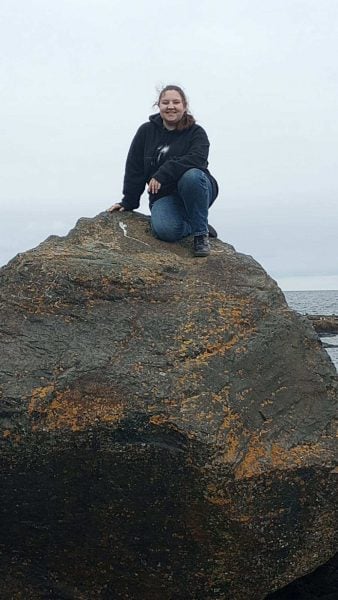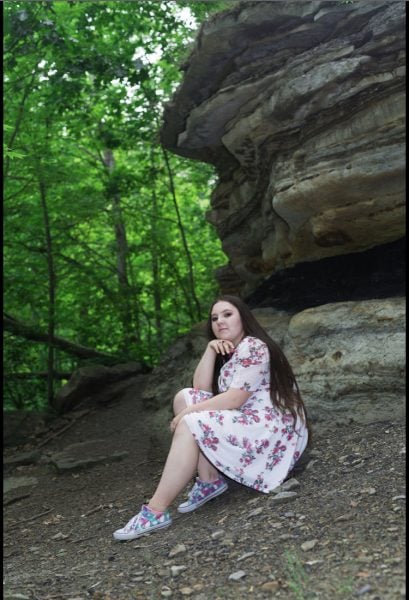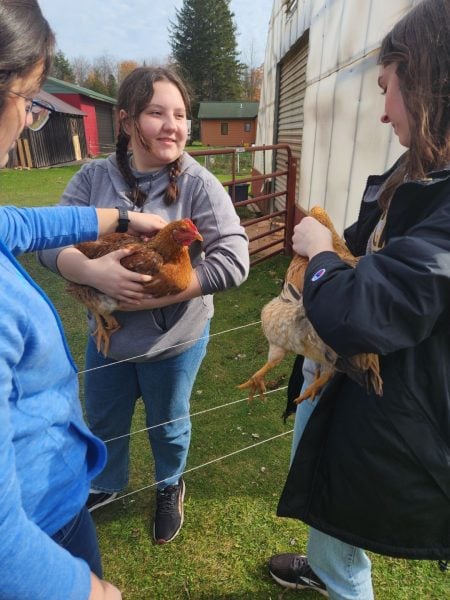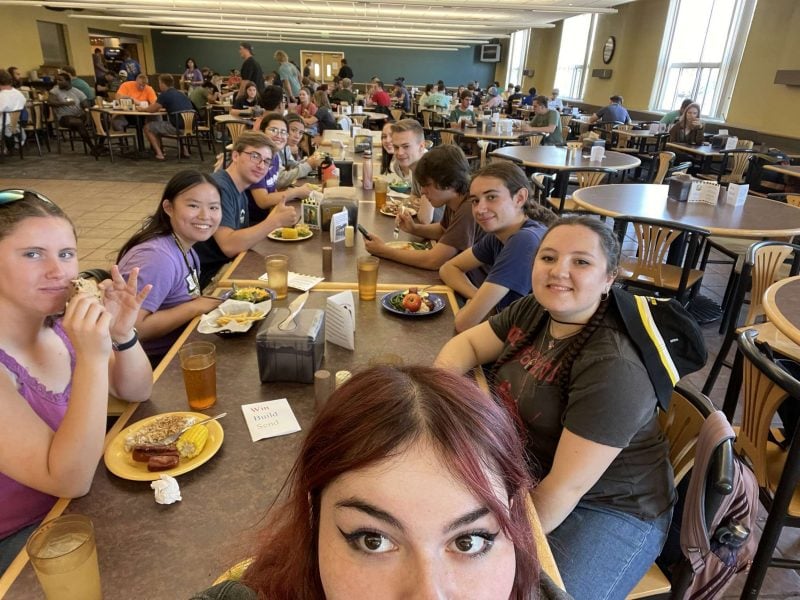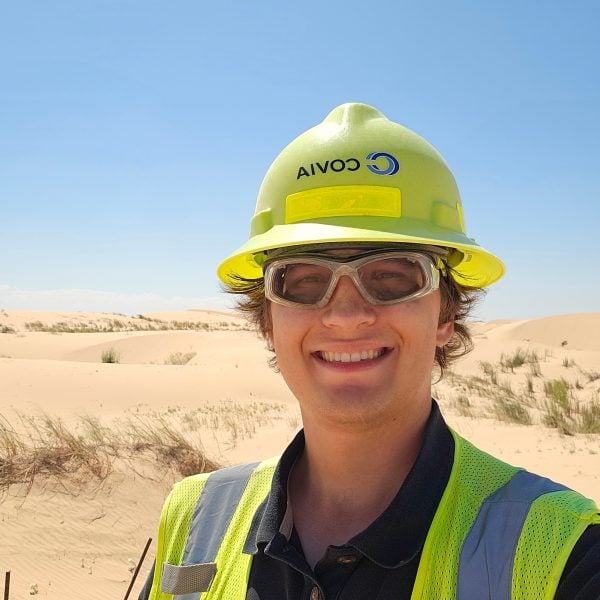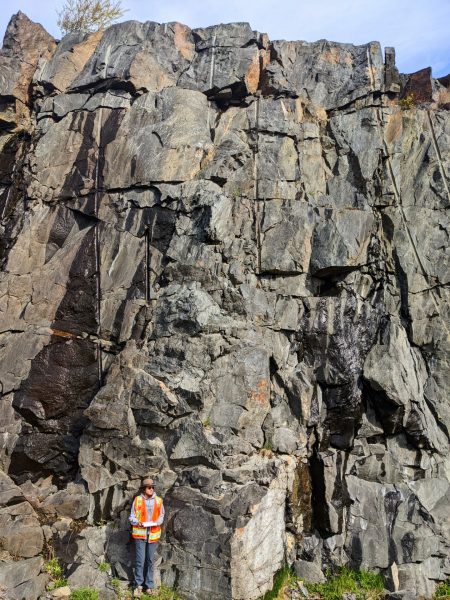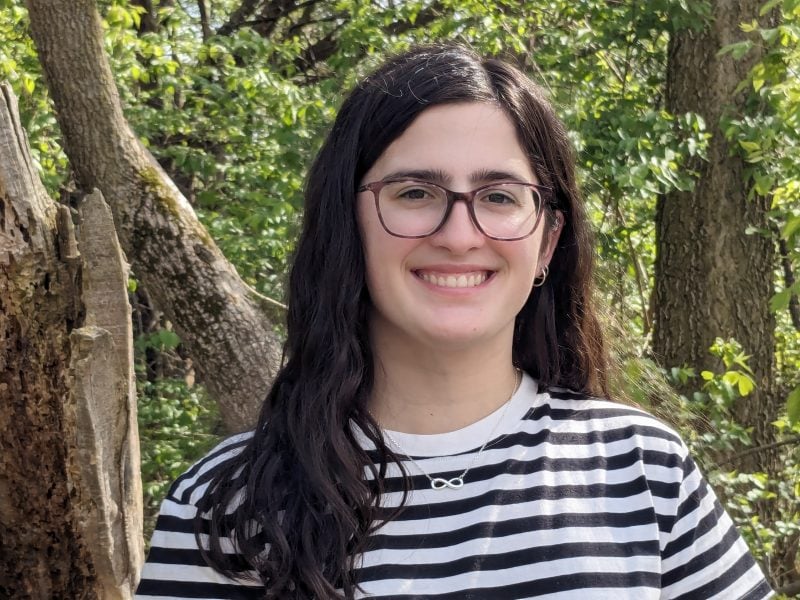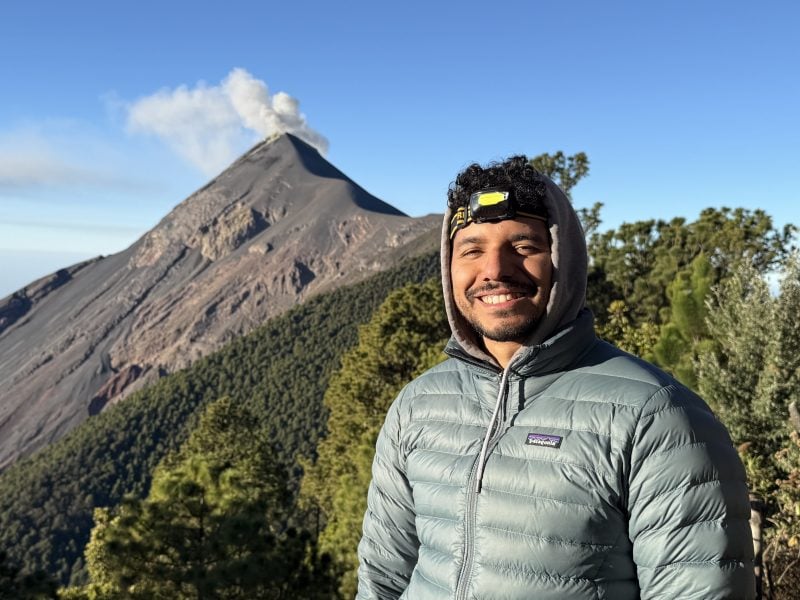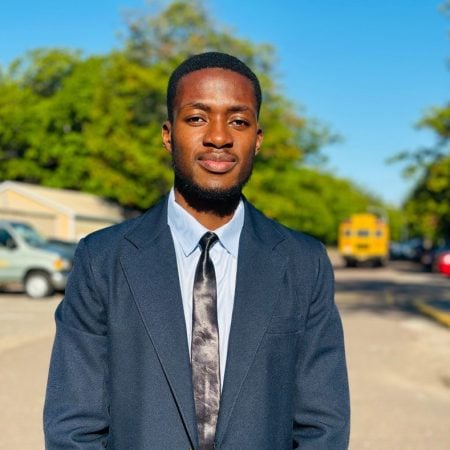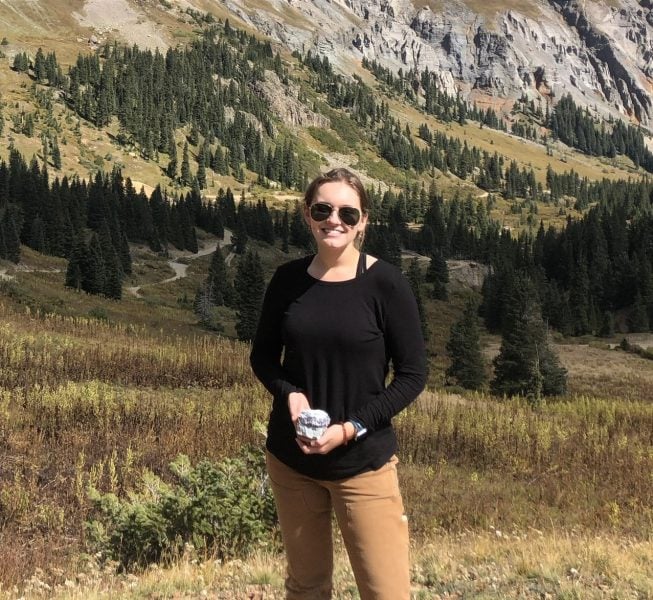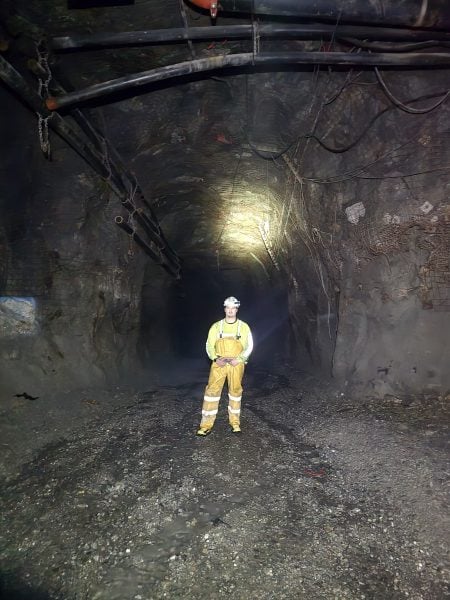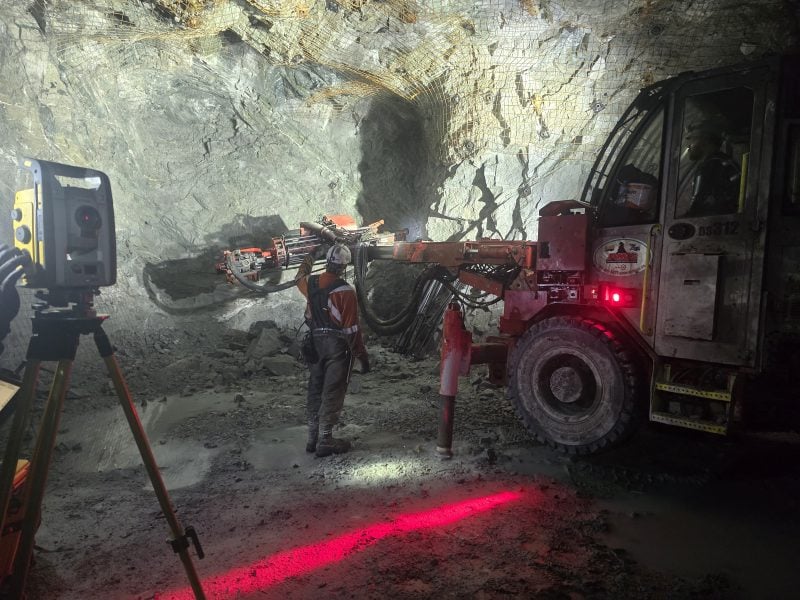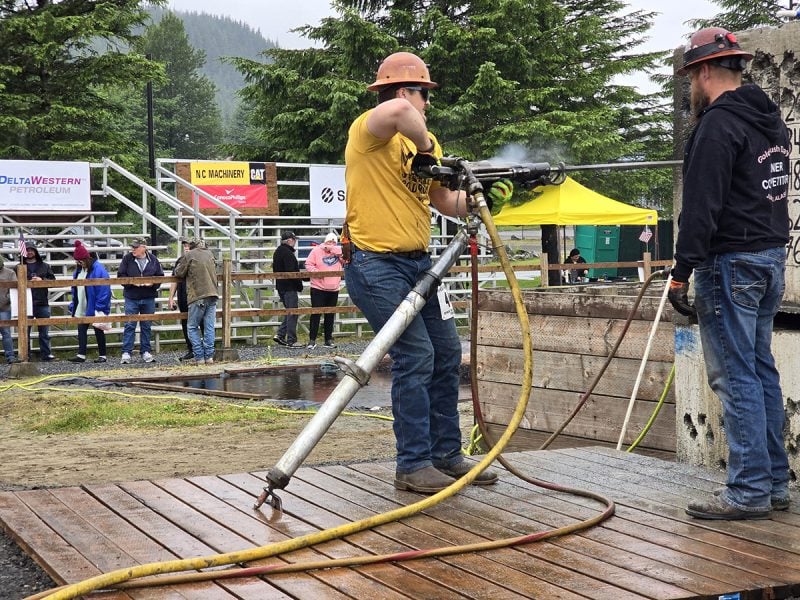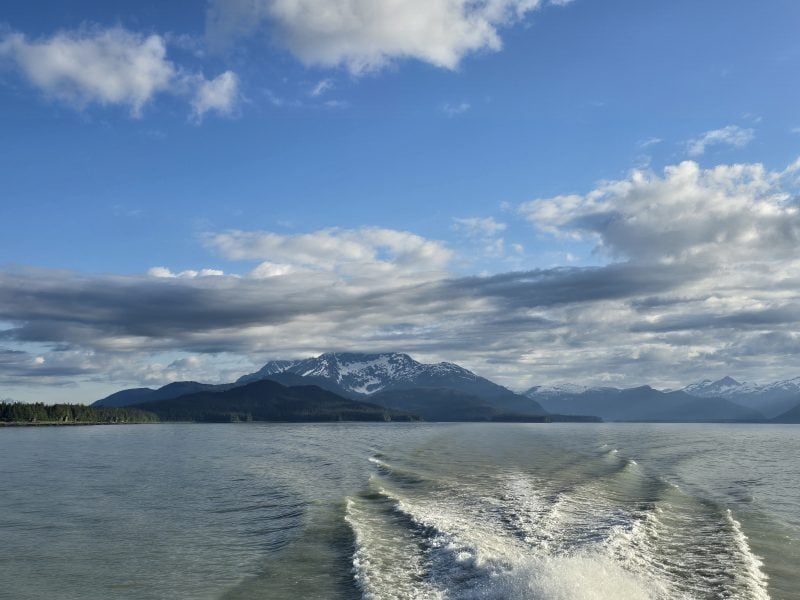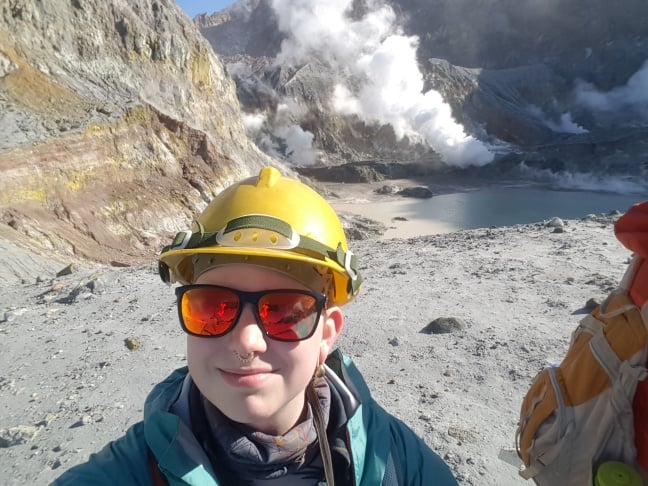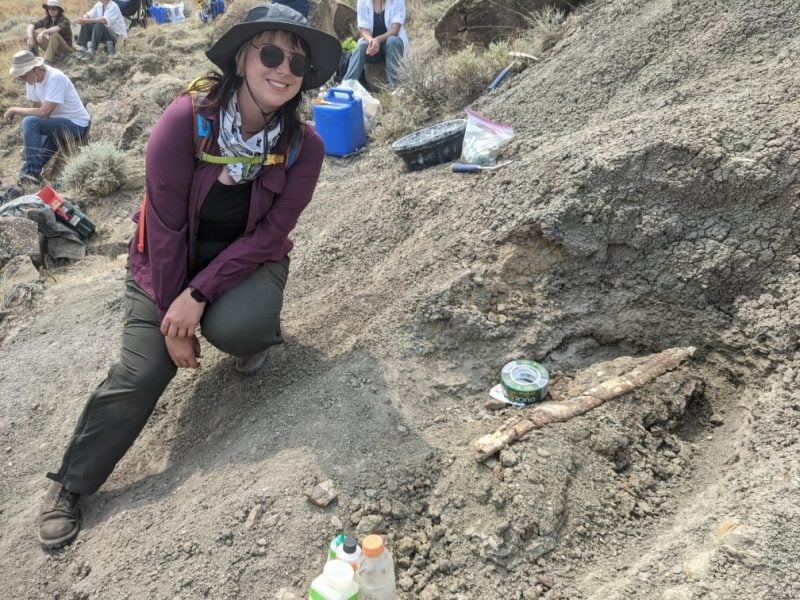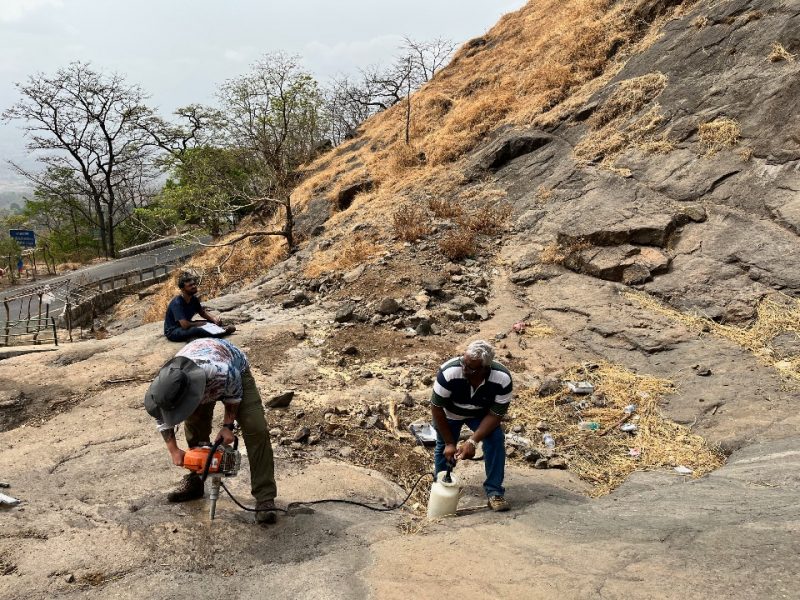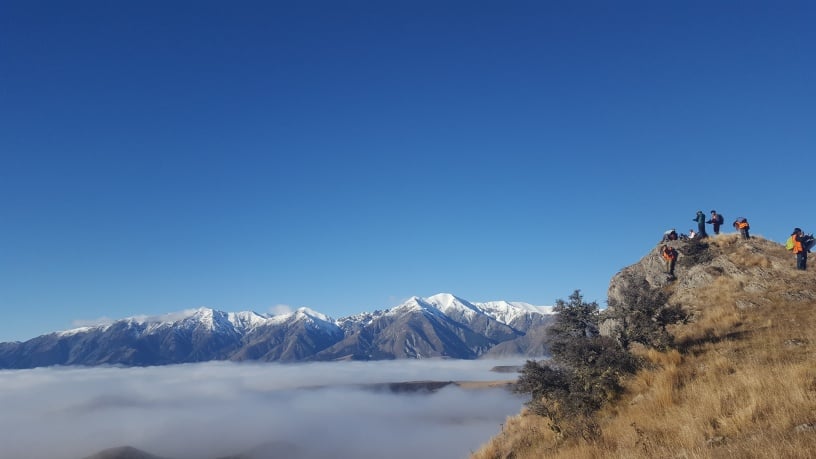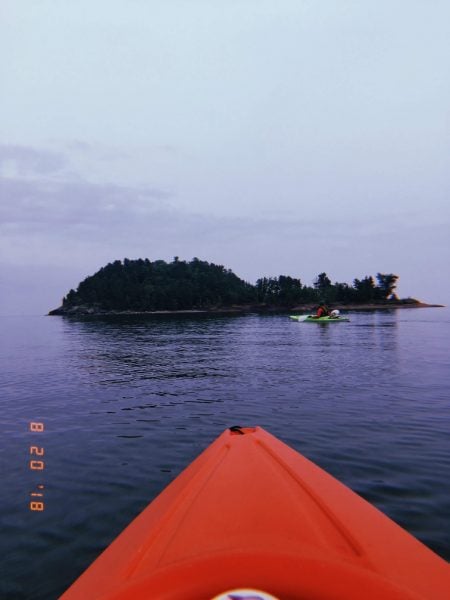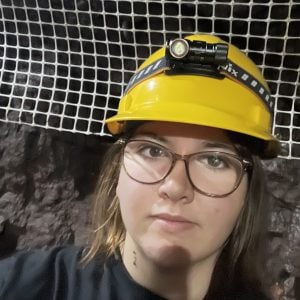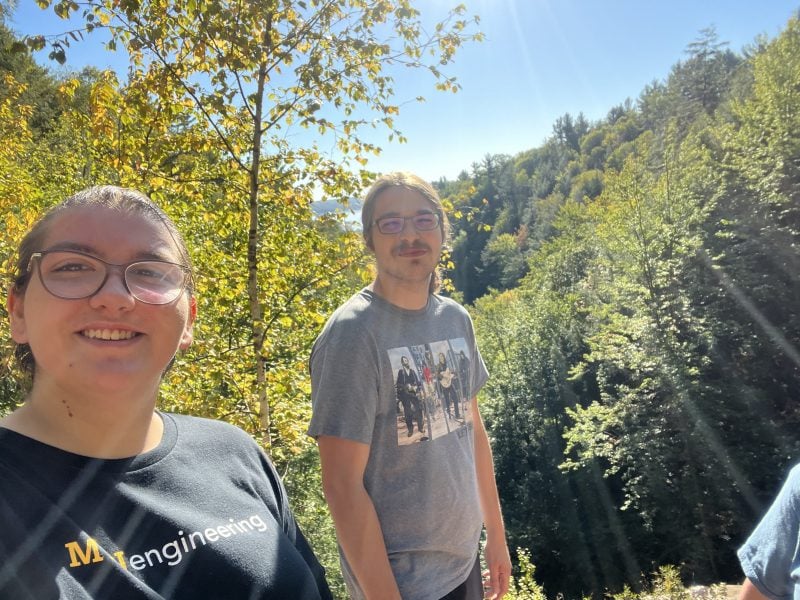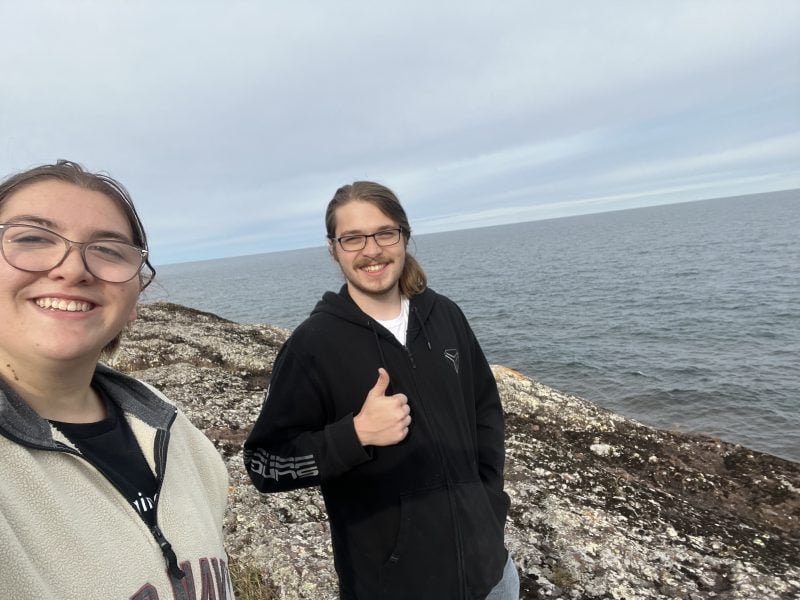High School Advanced Geology (HSAG) offers students a hands-on, engaging introduction to geology, fostering a deeper understanding of Earth processes. This early exposure sparks interest and helps students see geology as a potential career path, rather than just another subject. HSAG equips students with the knowledge, confidence, and connections needed to pursue a career in geosciences, making it a game-changer for aspiring professionals in the field. As the list of students going through the HSAG program grows, with reflections already shared by Milena Sremba and Miah Mol, we’re excited to share more insights from those inspired by it. Here’s why HSAG and Michigan Tech are setting students on the path to success in geosciences:
Hear from Calah Holman (@calahholman), BS Geology, 2027:
Q: How did HSAG impact your decision to study geology?
A: HSAG was the class that sparked my passion for geology. It’s now one of my top 3 favorite high school classes and an amazing opportunity to dive into geology, even if it’s not a focus at your school.
Q: Why MTU?
A: MTU has an incredible geoscience program, with remarkable local geology, smaller classes that suit my learning style, and extracurriculars that balance with school. Plus, the location is stunning!
Q: How did HSAG set you up for success at MTU?
A: Through a GVSU-sponsored HSAG program, I earned college credit and skipped GE2000 at MTU, easing my transition with one less course to worry about.
Q: What is the best advice for current HSAG students?
A: Make the most of your resources! The year-long format allows you to dive deep into the basics, preparing you well for college courses.
Q: What do you love about GMES?
A: The friendly, helpful community! I’ve made many friends, and the small class sizes mean you can continue seeing familiar faces throughout your courses.
Q: Standout moment in GMES?
A: After our GE1100 field trips, a group of us would always grab lunch at Wads—great memories and great company!
Learn from Joshua Trujillo, BS Geological Engineering, 2028:
Q: How did HSAG impact your decision to study geosciences?
A: HSAG showed me geology beyond my casual interest, sparking my passion and setting me on a career path.
Enjoy HSAG—it’s a gneiss class!
Q: Why MTU?
A: MTU’s geological engineering program and the area’s actual geology made it the perfect fit.
Q: How did HSAG help you at MTU?
A: It gave me solid geology knowledge, so I wasn’t starting from scratch when I arrived.
Q: What is the best advice for current HSAG students?
A: Enjoy HSAG—it’s a gneiss class!
Q: What do you love about GMES?
A: I get to explore remarkable rocks and learn about their story.
Q: Standout moment in GMES?
A: A private tour of the Quincy Mine, where we saw areas closed to most tourists—thanks to GMES!
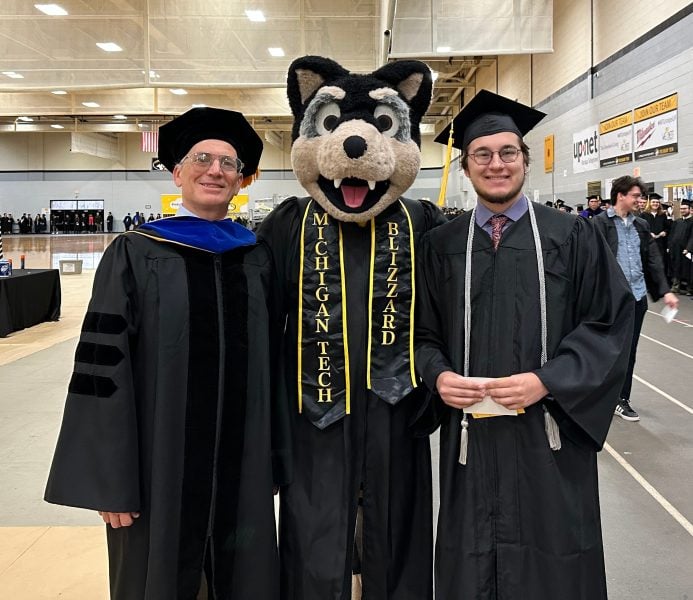
Hear what John Myaard (@john_my_yard), BS Geological Engineering 2023, had to say:
Q: How did HSAG impact your decision to study geosciences or engineering?
A: My time in HSAG was transformative. Previously, I hadn’t considered geology as anything other than a hobby and assumed I would pursue a computer science degree. Participating in HSAG fostered my passion for the geosciences with engaging lessons and an enthusiastic teacher. I experienced something that no other discipline offered. I took pleasure in how the concepts worked together to create a cohesive story as opposed to just terms and definitions. Although it was one class, it set me on a course to where I am today.
Q: Why MTU?
A: I was always aware of Michigan Tech. Being from Michigan and spending summers in the UP, I’d hear about it occasionally. What got my patronage, though, was when I went on a tour of the GMES department. One-on-one, I was guided through classrooms and labs, where it was shown and explained how I could turn my passion into a meaningful career, dispelling any lukewarm feelings I had for computer science.
Q: How did HSAG help you succeed at MTU?
A: HSAG gave me a strong base to build upon in addition to providing college credit. Like other AP classes, you take something that would typically take a semester and draw it out over three trimesters, giving ample time for additional exploration and thorough explanation.
Q: What is the best advice for a current HSAG student?
A: Beyond taking the program seriously, take the discipline seriously. As it stands, the various geological workforces are aging into retirement during a period when demand for their services is at an all-time high. Unlike other disciplines, it’s a big table with plenty of room.
Q: What are you doing now?
A: I graduated in December of 2023 and began working almost one year ago today (at the time of writing this). I am now the Mine Supervisor for a silica mine in West Texas. In this role, I create and carry out the short-term to mid-term mine plan, utilizing my geologic background to make the most informed decisions possible. My emphasis in work is to provide reliable feed to the processing plant while maximizing safe production and controlling costs.
Q: What’s a standout story or lesson you’ve gained during your journey with GMES?
A: Something that I learned during my time is just how vital having personable professors can be, and the benefits of having a smaller department. In every significant class I had, the professor knew me, and I knew them. If I needed help with coursework or professional development, they were always readily available and thorough in their response.
